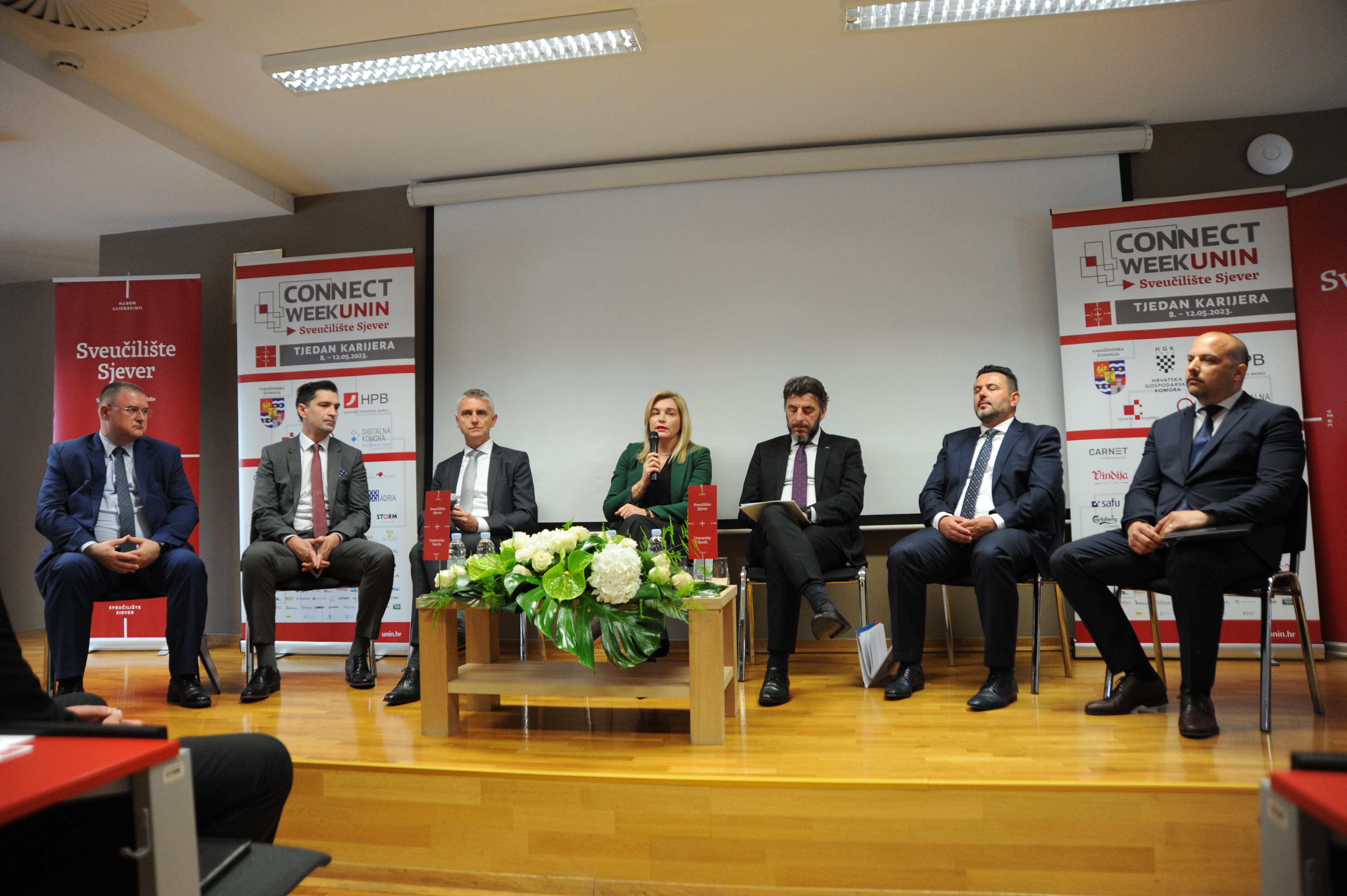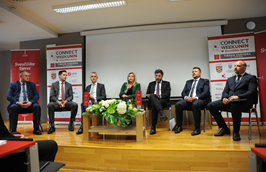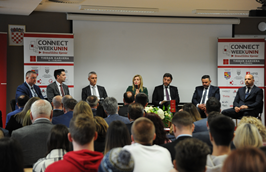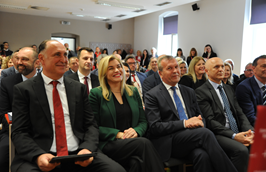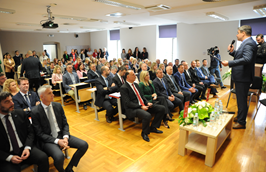08.05.2023.
Luka Balen, the director of the Environmental Protection and Energy Efficiency Fund, took part in the panel on the importance of EU funds for the development of the Croatian economy. The panel discussion was held in Varaždin as part of the career week “Connect Week UNIN” organised the University North.Apart from the director of the Fund, Luka Balen, other panellists included Nikolina Brnjac, the minister of tourism and sports, Bernard Gršić, state secretary at the Central State Office for the Development of Digital Society, the director of the Central Finance and Contracting Agency Dragan Jelić, the president of the Board of HAMAG BICRO Vjeran Vrbanec, Ivan Soldo, member of the Board of Hrvatska poštanska banka, and Gordan Kolak, the president of the Management Board of Končar.
“Croatia, like other Mediterranean countries, is highly susceptible to climate change. The current cost of investments in the climate change adaptation measures will significantly reduce the cost of remediating potential damage in the future. Many European and national financing schemes are available to local units, entrepreneurs, and citizens,” emphasized director Balen, adding that over the past years, the public showed great interest in the Fund’s calls. “It is important to invest in the green transition projects, but at the same time we have to promote specialisation in the so called “green jobs” in the education system and develop science and innovation projects. We have to foster cooperation between higher education institutions and the economy to optimise the labour market, which will create beneficial conditions for both people seeking jobs and employers,” concluded Balen.
This year’s career week “Connect Week UNIN”, organised by the University North, gathered in one place a record number of companies, institutions and students, showing that the academic and business communities are well aware of the necessity to cooperate and resolve the labour market crisis.
Petar Mišević, the prorector for economic cooperation, EU projects and inter-institutional cooperation, and also an advisor to the president of the CCE, believes that in order to keep the young workforce in Croatia, it is vital to offer easy access to the labour market and competitive job opportunities.
The minister of tourism and sports, Nikolina Brnjac, agreed and pointed out that the human resources problem was not specific to Croatia alone, but a challenge that Europe and the world in general were faced with. “When we talk about careers in tourism and hospitality industry, we concentrate on providing good, safe, and permanent jobs for domestic labour, so we have scholarship programmes and campaigns promoting jobs in tourism to encourage the young to go into this sector. In the last two years, we’ve increased the scholarships, extended the partner network, and in the National Recovery and Resilience Plan we’ve earmarked EUR 1.3 million for education to train the unemployed and interested people for jobs in the tourism sector,” said Brnjac, adding that Croatia was looking to develop environmentally sustainable tourism.
The rector of the University North, Marin Milković, said that some programmes at the university offered courses on tourism, but the focus was on technical programmes. The panel concluded with the data of the World Economic Forum that indicate that by 2025, 97 million new jobs will emerge globally, of which more than a third will be related to IT, so it is understandable that companies are interested in the STEM field and building connections with the future workforce.


